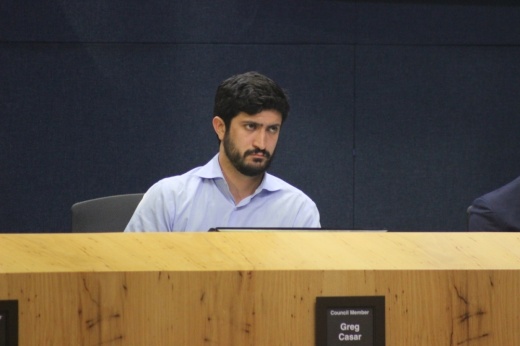Austin and Travis County Medical Director, Dr. Mark Escott, said ensuring employees can comfortably stay home from work if they feel sick is a crucial part of mitigating the spread of the virus.
“It is the linchpin in our public health response; it is the linchpin of our preparation activities; it is the No. 1 defense that we have,” Escott told City Council earlier this week. “Right now it is absolutely critical that there are no barriers to people being able to stay home when they are sick.”
Earlier this week, U.S. Surgeon General Jerome Adams emphasized the necessity for employers to offer paid sick leave, explaining that it would be more cost effective for businesses in the long run.
In 2018, Austin City Council overwhelmingly approved a mandatory paid leave ordinance for employers across the city; however, a lawsuit filed by the Texas Public Policy Foundation has held the law from taking effect. District 4 City Council Member Greg Casar, who led the effort behind the ordinance, has called on the Texas Public Policy Foundation to at least temporarily pull down the lawsuit until the pandemic is under control.Americans: if you are sick with fever/cough/ flu symptoms, please don’t go to work!
— U.S. Surgeon General (@Surgeon_General) March 8, 2020
Employers: PLEASE understand giving your employees flexibility and (paid) sick leave will save you money in the long run- it’s much cheaper than shutting down because everyone else gets sick!
The Texas Public Policy Foundation did not return calls for comment by press time. The Austin Chamber of Commerce, which also objected to the city’s paid sick leave policy, did not return multiple requests for comment by publication time.
“This is exactly why we put this into place so that people would not feel like they had to choose between a paycheck and being able to go to the doctor and get checked,” Casar said. “Especially people working in working class jobs, in our assisted living facilities or in hospitals or as health care workers. Of course, it’d be great if employers just went ahead and gave them their paid sick time, but I think there is a call happening the state for our state leaders to allow us to enforce those ordinances because it really is a matter of life and death for a lot of people.”
On March 12, City Council unanimously agreed to extend the March 6 disaster declaration issued by Austin Mayor Steve Adler through April 5. Casar furthered his calls for the city and county to do what it could to mitigate the economic impact and spread of the virus. On March 13, the city and county answered some of those calls.
Austin Energy and Austin Water announced they would halt commercial and residential utility shut-offs during the COVID-19 outbreak. Travis County said it would suspend all eviction hearings until at least April 1, and stop issuing writs of possession—orders that allow the county to forcibly remove someone from their property—for at least 60 days.
District 6 City Council Member Jimmy Flannigan said the city needs to begin working through the “larger institutional and sustainable role” it needs to play in addressing the economic impact of the coronavirus and the cancellation of the city’s famed tech and culture festival, South by Southwest. He said the work needs to pull together the concerns of “small and local businesses, and service, music, film and others who are impacted by this unfortunate situation.”
On March 13, U.S. President Donald Trump declared a national emergency in response to the coronavirus and announced new aggressive measures to control the spread of the disease. Trump said he would also issue additional orders related to mitigation of the economic impact; however, they were not issued as of publication time.





